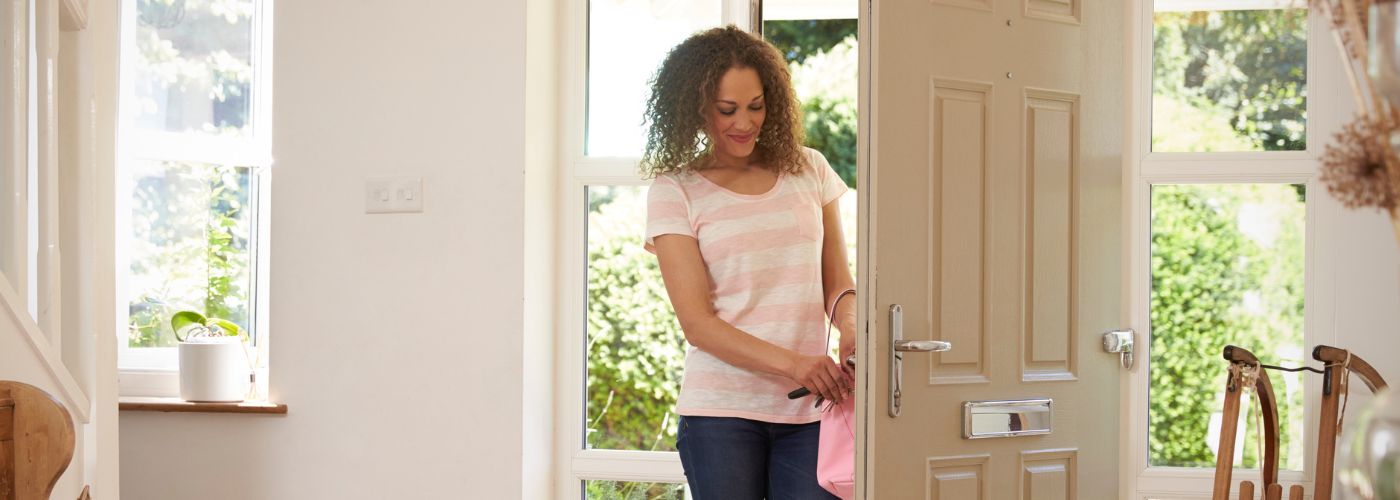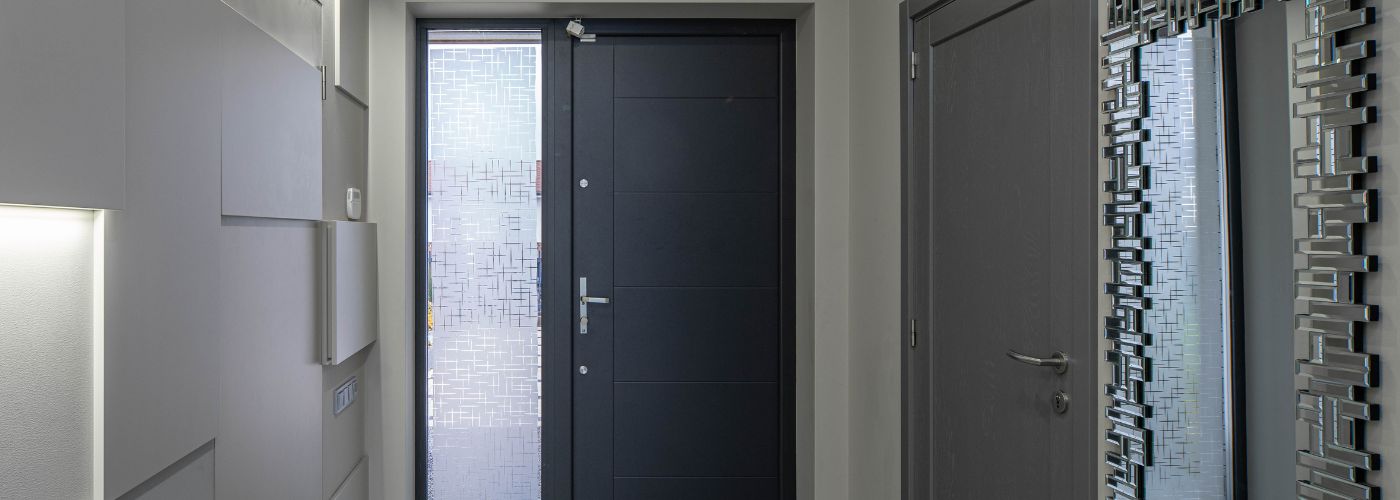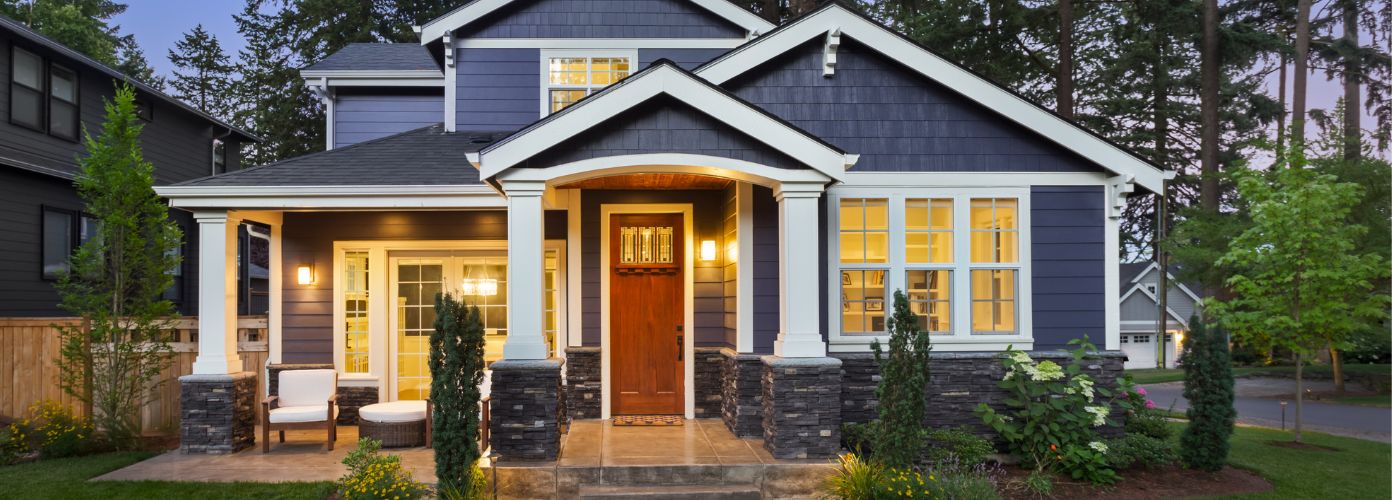In today’s world, energy efficiency is a crucial factor in reducing environmental impact as well as saving money on utility bills. When it comes to doors, choosing an energy-efficient option can make a significant difference in the amount of heat or cool air that escapes your home. We’ll guide you through the process of choosing an energy-efficient door that fits your budget and requirements while also contributing towards a cleaner environment.
What Type Of Door Insulates Best?

Wooden doors are popular for their aesthetic appeal and natural insulation ability. They are made from solid wood or engineered wood and are known for their high R-value, meaning they can resist heat transfer effectively.
This makes wooden doors a very common door type among homeowners. Wooden door installation also offer a classic traditional curb appeal that many homeowners strive for.
The door is the first thing that any visitor sees before they walk into your homes. This is why many homeowners choose wooden doors for their energy efficiency insulation plus traditional aesthetics.
Fiberglass doors are another common door type that’s gained popularity in recent years due to their durability, low maintenance costs, and insulating properties. These doors consist of an inner core made of foam or polyurethane that provides excellent thermal resistance.
Lastly, steel doors are also another good option for homeowners looking for an energy efficient door. Steel doors provide adequate insulation as they come with a foam core that helps reduce heat loss during colder months while preventing heat gain during summer months.
What’s The Worst Door For Insulation?
Not all doors are created equal when it comes to insulation. In fact, some types of doors can be downright terrible at keeping your home’s temperature regulated.
One of the worst types of doors for insulation is single-pane glass doors. These are commonly found in sliding patio doors and some entryway doors. Single-pane glass offers little to no insulation value and allows heat to easily escape during the winter months and penetrate your home during hot summer days.
This can result in higher energy bills as your heating and cooling systems work harder to maintain a comfortable indoor temperature.
Another poor choice for insulated doors is hollow-core interior doors. These types of doors have an empty core that does not provide any thermal resistance. When these doors are used on exterior walls, the hollow core allows hot or cold air to easily pass through. Making it no optimal for heat and cold insulation.
Fortunately, there are ways to improve the insulation value of your sliding glass door. One option is adding a storm door to provide an extra layer of protection against the elements. A storm door is typically made of thicker materials than a standard screen door and provides better insulation properties.
It also helps keep out drafts, which can significantly impact your home’s energy efficiency by reducing heat loss in winter months. In addition, installing weatherstripping around the edges of both doors will further reduce air leakage, resulting in lower energy bills over time. It’s best to replace the weatherstripping whenever you visibly see it’s quality compromised.
Are Steel Doors Well Insulated?

Steel doors are a popular choice for homeowners looking for a durable and secure option. However, one question that often comes up is whether steel doors are well insulated. Yes, steel doors are a great option for homeowners looking for energy efficient door replacement.
Generally speaking, most steel doors are insulated with some form of polyurethane foam. This material has excellent insulating properties that allow it to trap air and reduce heat transfer. Some manufacturers use higher-density foam than others, which can improve insulation even further.
However, not all steel doors have insulation in them, so it’s important to check before purchasing.
Another factor that affects the insulation capabilities of a steel door is its construction quality. Doors with thicker gauge steel will generally provide better insulation than those made from thinner gauges.
How Long Does A Door Last?
So how long does a door last? The answer depends on several factors such as the material used, the quality of construction and maintenance.
Wooden doors are popular for their timeless beauty and durability but they can be susceptible to rotting if not properly maintained. On average, a solid wood door lasts between 35-50 years with proper care.
However, some high-quality wooden doors can last even longer! Fiberglass doors are another popular choice because they’re weather-resistant and require less maintenance than wood. These types of doors typically last between 20-30 years with regular upkeep.
Steel is another popular door material that’s known for its strength and security benefits. Steel doors last about 30-40 years with regular maintenance.
